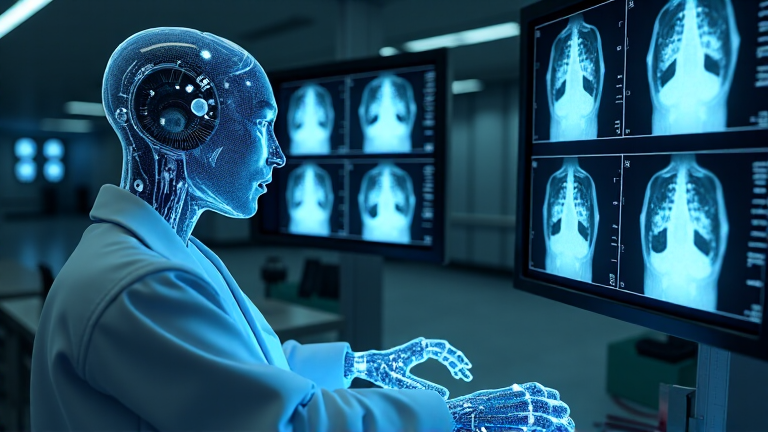
Transforming Breast Cancer Treatment: The Promise of AI
A New Era in Breast Cancer Screening
Artificial intelligence (AI) is poised to revolutionize breast cancer screening, possibly leading to a significant increase in the speed and number of patients receiving treatment. Currently, two radiologists are required to analyze mammography images to ensure precision. The ongoing trial with AI technology aims to reduce this to a single radiologist, thus freeing resources to accommodate more patients.
Nationwide AI Trial
The UK government has announced that nearly 700,000 women will participate in this groundbreaking research. Those already set for routine NHS screenings will be invited to join the £11 million Early Detection Using Information Technology in Health (Edith) trial. To support this initiative, approximately 30 testing sites throughout the country will integrate AI technology.
The Urgent Need for Radiology Capacity
Breast Cancer Now reports that around 55,000 women and 400 men are diagnosed with breast cancer annually in the UK. Dr. Katharine Halliday, president of the Royal College of Radiologists, emphasized the need to expand radiology capacity, citing a potential 40% shortage of consultant radiologists by 2028. She noted that, while AI presents significant potential benefits in managing breast screening's complexity and volume, it is crucial to ensure this transformation is evidence-based.
Evidence-Based Progress
Claire Rowney, chief executive of Breast Cancer Now, stresses that any adjustments to the breast screening program must be backed by solid evidence demonstrating safety and efficacy. The government is actively seeking such evidence to inform a comprehensive national cancer plan aimed at reimagining treatment methodologies to decrease mortality rates.
Ambitious Cancer Plan
Professor Peter Johnson, national clinical director for cancer, notes that the NHS is identifying more cancers at early stages than ever before, facilitating effective treatment options. He underlines the necessity for a national cancer plan to further accelerate progress. This initiative will foster the adoption of innovative practices, ensuring the NHS remains a leader in cancer treatment evolution.
The Critical Importance of Early Detection
Peter Kyle, the science and technology secretary, highlights the life-and-death significance of early cancer detection, underscoring the transformative potential of catching cancer weeks earlier.
By integrating AI into breast cancer screening, the NHS could significantly enhance both the care and outcomes for patients, marking a notable advancement in the fight against cancer.
Note: This publication was rewritten using AI. The content was based on the original source linked above.